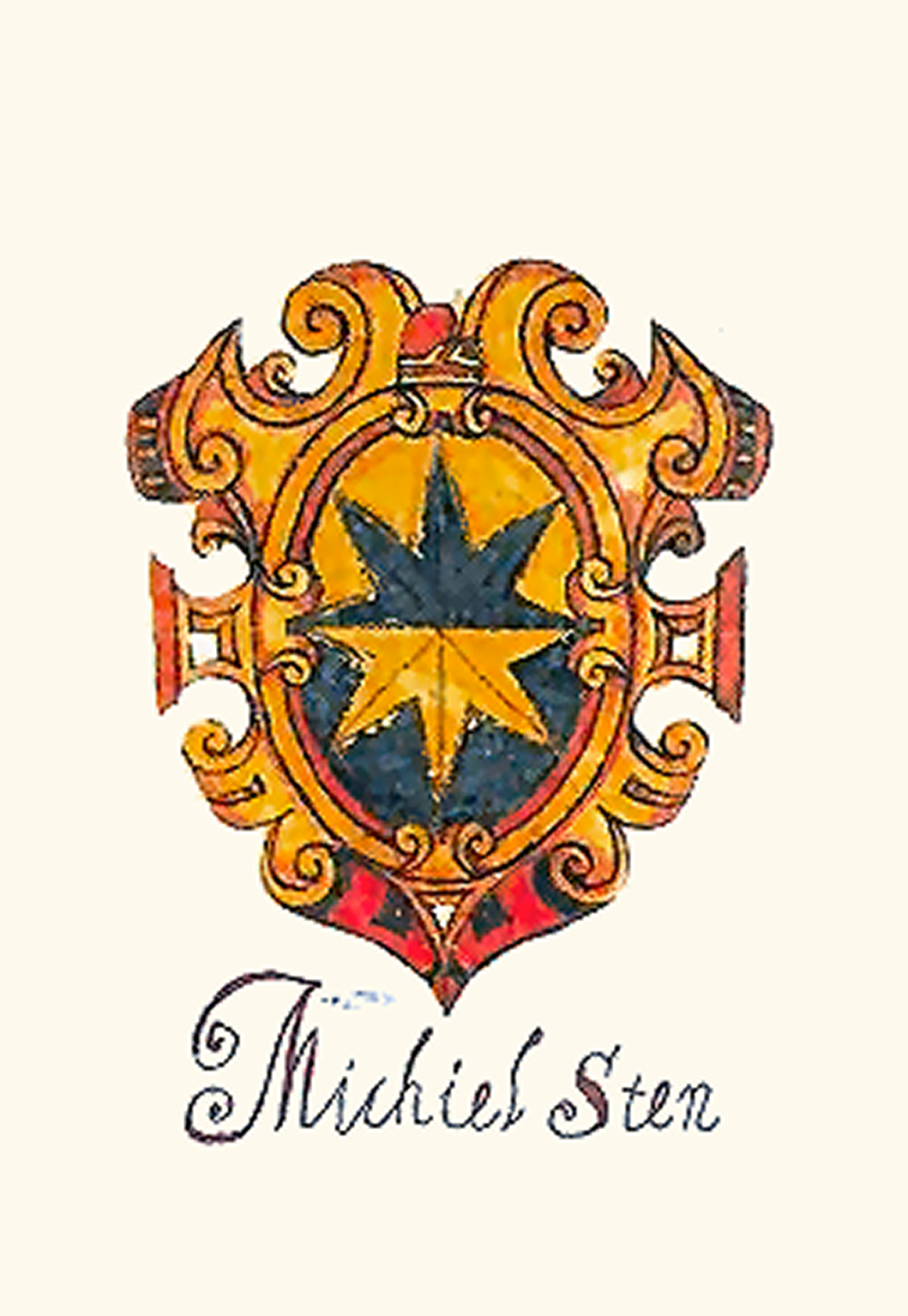Michele Steno on:
[Wikipedia]
[Google]
[Amazon]
 His tomb in Venice.
His tomb in Venice.
 Michele Steno (''Michiel Sten'' in
Michele Steno (''Michiel Sten'' in
Staley, Edgcumbe: The dogaressas of Venice : The wives of the doges. London : T. W. Laurie
/ref> He later served as proveditor of Venice, and proved a capable
 His tomb in Venice.
His tomb in Venice.
 Michele Steno (''Michiel Sten'' in
Michele Steno (''Michiel Sten'' in Venetian Language
Venetian, wider Venetian or Venetan ( or ) is a Romance language spoken natively in the northeast of Italy,Ethnologue mostly in the Veneto region, where most of the five million inhabitants can understand it. It is sometimes spoken and often ...
; 1331 – December 26, 1413) was a Venetian statesman who served as the 63rd Doge of Venice
The Doge of Venice ( ; vec, Doxe de Venexia ; it, Doge di Venezia ; all derived from Latin ', "military leader"), sometimes translated as Duke (compare the Italian '), was the chief magistrate and leader of the Republic of Venice between 726 a ...
from December 1, 1400 until his death. He is remembered as the ruler crucial for establishing the Domini di Terraferma
The ( vec, domini de terraferma or , ) was the hinterland territories of the Republic of Venice beyond the Adriatic coast in Northeast Italy. They were one of the three subdivisions of the Republic's possessions, the other two being the origi ...
, in the aftermath of the War of Padua
The War of Padua was a conflict in 1404–1405 between the Republic of Venice and the Carrarese lordship of Padua. In the power vacuum produced by the death of the Duke of Milan, Gian Galeazzo Visconti, in 1402, Francesco II da Carrara endeavo ...
.
Biography
Steno was born inVenice
Venice ( ; it, Venezia ; vec, Venesia or ) is a city in northeastern Italy and the capital of the Veneto Regions of Italy, region. It is built on a group of 118 small islands that are separated by canals and linked by over 400 ...
into a family of some, though not great, wealth, and had lived a dissolute life in youth; he and a number of other young men were at one point nearly executed by the government for covering the Doge Marino Faliero
Marino Faliero (1274 – 17 April 1355) was the 55th Doge of Venice, appointed on 11 September 1354.
He was sometimes referred to simply as Marin Falier (Venetian rather than standard Italian) or Falieri. He was executed for attempting a coup d ...
's throne with "ignominious" inscriptions against him and his spouse, Aluycia Gradenigo
Aluycia Gradenigo (died 1385) was the Dogaressa of Venice by marriage to the Doge Marino Faliero (r. 1354–1355).
Aluycia was the daughter of Nicolo Gradenigo and related to doge Pietro Gradenigo. She was known for her beauty and her love li ...
./ref> He later served as proveditor of Venice, and proved a capable
diplomat
A diplomat (from grc, δίπλωμα; romanized ''diploma'') is a person appointed by a state or an intergovernmental institution such as the United Nations or the European Union to conduct diplomacy with one or more other states or internati ...
.
In 1400 he was elected as doge as a compromise choice, since previous votes had become deadlocked. Upon becoming Doge he took to dressing like Lorenzo Celsi
Lorenzo Celsi (born Venice, c. 1310 – died there 18 July 1365) was a Venetian statesman who served as the 58th Doge of Venice, from 16 July 1361 until his death.
Biography
He was the son of a rich Celsi family, and was previously noted for l ...
, who had been known for his elegance of dress. In his accession's year, Venice begun a successful war against Padua
Padua ( ; it, Padova ; vec, Pàdova) is a city and ''comune'' in Veneto, northern Italy. Padua is on the river Bacchiglione, west of Venice. It is the capital of the province of Padua. It is also the economic and communications hub of the ...
and its lord, Francesco da Carrara, leading to a substantial expansion of the republic in the Italian mainland. During the Christian schism of 1408, Venice sided with Pope Alexander V
Alexander is a male given name. The most prominent bearer of the name is Alexander the Great, the king of the Ancient Greek kingdom of Macedonia who created one of the largest empires in ancient history.
Variants listed here are Aleksandar, Al ...
.
An old and ill man in his late years, Steno died in 1413, and was interred in the Basilica di San Giovanni e Paolo, a traditional burial place of the doges.
Steno was succeeded as Doge by Tommaso Mocenigo
Tommaso Mocenigo (1343–1423) was ''doge'' (chief magistrate) of the Republic of Venice from 1414 until his death.
Biography
He commanded the crusading fleet in the expedition to Nicopolis in 1396 and also won battles against the Genoes ...
.
Cultural references
Michele Steno is honored as the dedicatee ofJohannes Ciconia
Johannes Ciconia ( – between 10 June and 13 July 1412) was an important Flemish composer and music theorist of trecento music during the late Medieval era. He was born in Liège, but worked most of his adult life in Italy, particularly ...
's motet
In Western classical music, a motet is mainly a vocal musical composition, of highly diverse form and style, from high medieval music to the present. The motet was one of the pre-eminent polyphonic forms of Renaissance music. According to Margar ...
, "Venecia, mundi splendor/Michael, qui Stena domus," probably on the occasion of Padua's submission to Venetian rule. Among other rhetorical flourishes, the text praises Michele for his celibate life (''vitam celibem'').
References